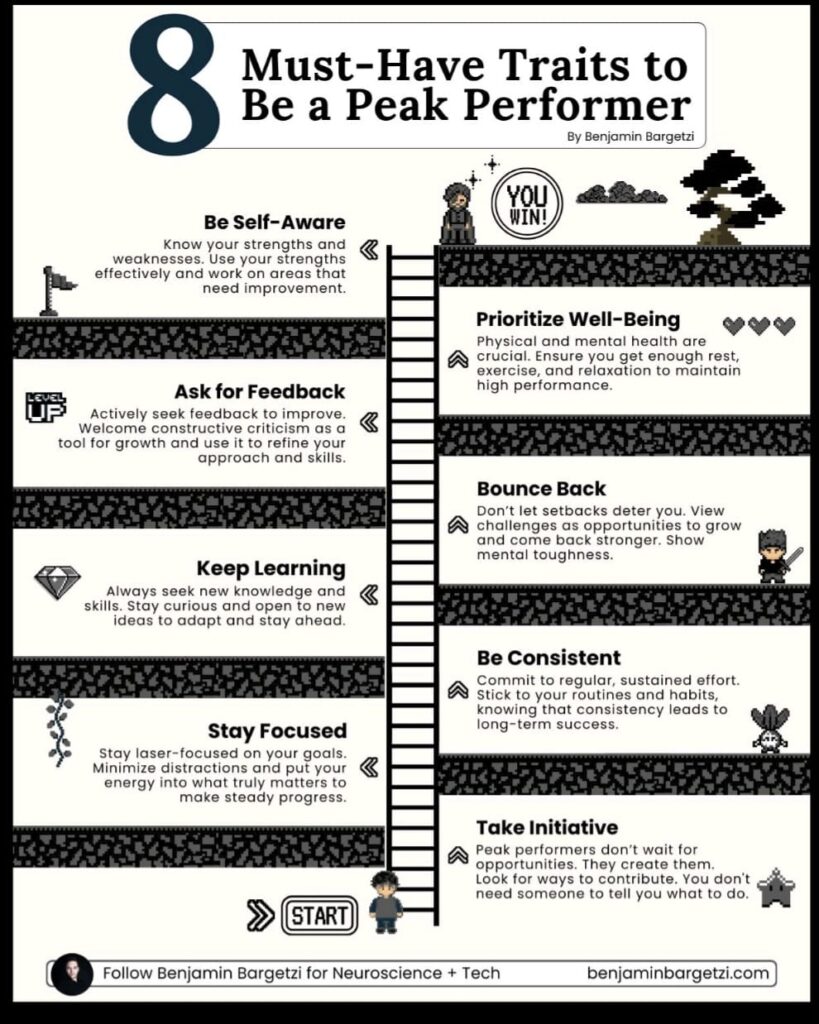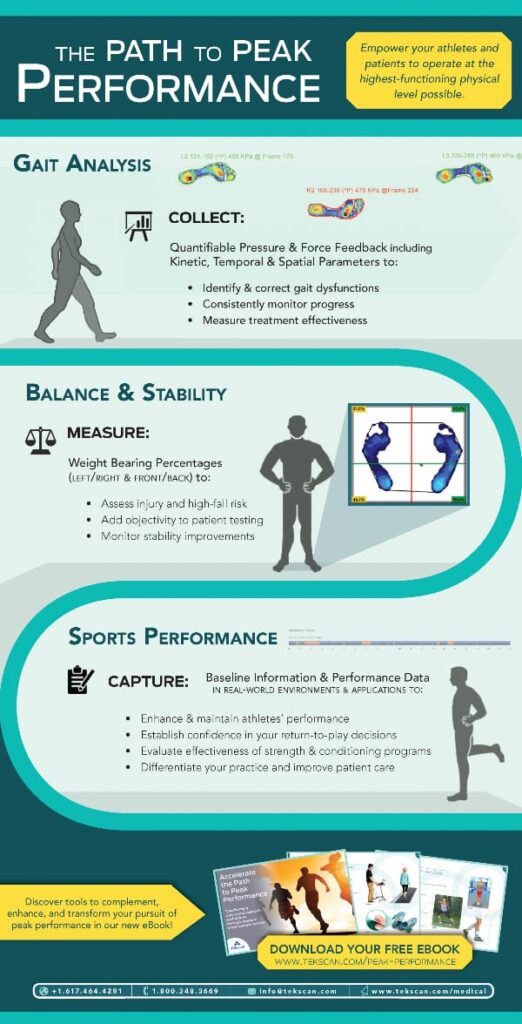Unlocking the Science of Success
In today’s hyper-competitive world, whether you’re a CEO, an elite athlete, or a student striving for excellence, the pursuit of peak performance has become a defining goal. From boardrooms to classrooms, and even on the battlefield, mindfulness is being increasingly embraced as a tool to boost focus, productivity, and emotional resilience.
This ancient practice, once confined to spiritual traditions, is now backed by cutting-edge neuroscientific research that shows how mindfulness physically transforms the brain to help individuals operate at their best. What if you could train your brain like a muscle to be more focused, less reactive, and better equipped to make high-stakes decisions?
Studies in neuroscience reveal that mindfulness activates and strengthens brain regions responsible for attention, memory, and emotion regulation. In doing so, it enables what researchers call “neuroplasticity”—the brain’s ability to rewire itself through repeated experience and practice.
This article explores the intersection of mindfulness and neuroscience, unpacking how simple mental practices can lead to profound shifts in cognitive and emotional functioning.
Understanding Peak Performance: The Science of Operating at Your Best
Psychologist Mihaly Csikszentmihalyi termed this optimal state of consciousness as “flow,” where people are so involved in an activity that nothing else seems to matter. Achieving this level of performance is not just about natural talent or sheer willpower; it’s about mastering internal states and learning how to regulate attention, emotion, and energy effectively.
Peak performers across disciplines share common traits: intense focus and concentration, a clear sense of purpose, high motivation, emotional regulation, and the ability to stay calm under pressure.
These individuals often exhibit a strong sense of resilience—they recover quickly from setbacks and use challenges as opportunities for growth. Whether it’s an athlete hitting a personal best or a surgeon performing a complex procedure, peak performance is grounded in discipline, mental clarity, and a heightened state of awareness.
However, several factors can interfere with our ability to reach and sustain this high-performance zone. Chronic stress, multitasking, burnout, sleep deprivation, and digital distractions significantly impair cognitive function and emotional balance.
The modern world’s relentless demands push many of us into survival mode, where we react rather than respond. These disruptions can weaken our executive functioning—the very mental skills needed for goal-directed behavior, self-control, and decision-making.
It directly targets the systems in the brain responsible for attention, self-awareness, and emotional regulation, offering a science-backed method to move from a reactive mindset to a responsive, high-performing state.
The Science of Mindfulness: Bridging Ancient Wisdom and Modern Neuroscience
While mindfulness has roots in ancient contemplative traditions, particularly Buddhist meditation practices, it has evolved into a secular, science-backed approach widely used in clinical psychology, education, corporate leadership, and high-performance coaching.
At its core, mindfulness helps break the cycle of autopilot thinking—those habitual mental patterns that keep us distracted, anxious, or emotionally reactive. By cultivating present-moment awareness, individuals can improve concentration, make clearer decisions, and better regulate their emotions, all of which are crucial for sustained peak performance.

This infographic by Benjamin Bargetzi outlines eight essential traits—such as self-awareness, resilience, and consistency—that are key for achieving peak performance. It emphasizes practical strategies like taking initiative, staying focused, and prioritizing well-being to unlock your full potential.
This simple yet profound practice activates areas of the brain associated with self-regulation and cognitive control, thereby enhancing mental clarity and resilience. It’s important to distinguish mindfulness from meditation, although the two are often used interchangeably.
A growing body of scientific evidence supports the effectiveness of mindfulness in changing how the brain works. MRI studies reveal that regular mindfulness practice thickens the prefrontal cortex (responsible for planning and decision-making) and shrinks the amygdala (the brain’s fear center), leading to improved emotional regulation and reduced stress.
As researchers continue to uncover the neuroscientific mechanisms behind mindfulness, it becomes clear that this age-old practice is a powerful tool for enhancing modern-day performance—one breath, one moment at a time.
How Mindfulness Rewires the Brain: The Neuroscience Behind Lasting Change
One of the most profound discoveries in modern neuroscience is the concept of neuroplasticity—the brain’s ability to reorganize itself by forming new neural connections throughout life.
Multiple neuroimaging studies have shown that mindfulness enhances the prefrontal cortex, the part of the brain responsible for executive functions like decision-making, focus, impulse control, and goal-setting. Mindfulness also reduces the size and activity of the amygdala, the brain’s center for fear and emotional reactivity.
Another key region impacted by mindfulness is the hippocampus, which plays a central role in learning and memory. Mindfulness increases grey matter density in the hippocampus, supporting improved information retention and mental flexibility. This allows for better problem-solving, creativity, and adaptation—skills needed to excel in both personal and professional spheres.
Mindfulness also influences the Default Mode Network (DMN), a network of brain regions that becomes active when the mind is idle or wandering. This shift enhances the ability to enter a flow state, where peak performance naturally arises.
On a chemical level, mindfulness promotes the release of neurotransmitters like dopamine and serotonin, which improve mood, motivation, and overall cognitive functioning. These brain chemicals help maintain a positive and resilient mental state, which is critical for overcoming setbacks and staying engaged over the long term.
Through consistent practice, individuals not only become more aware but also rewire their brains for enhanced performance, emotional balance, and long-term well-being. It’s a scientifically validated method for cultivating the mental architecture of success—proving that how we think can change how we perform.
Real-Life Applications: Mindfulness in Action Across High-Performance Fields
In the world of sports, elite athletes are increasingly turning to mindfulness to gain a mental edge. Tennis legend Novak Djokovic has credited mindfulness and meditation as integral to his mental conditioning, helping him stay present and composed during high-pressure matches.
The Seattle Seahawks, under coach Pete Carroll, incorporated mindfulness training into their routine, contributing to their Super Bowl win. These athletes report not just improved focus and performance, but also faster recovery from mistakes and reduced anxiety.
In corporate settings, mindfulness has become a cornerstone of executive leadership development. Tech giants like Google and Intel offer structured mindfulness programs such as “Search Inside Yourself,” which aim to improve emotional intelligence, productivity, and employee well-being.
The military, a domain where lives depend on rapid and sound judgment, has also adopted mindfulness with promising results. The U.S. Army has implemented mindfulness-based mind fitness training (MMFT) to enhance soldiers’ cognitive and emotional resilience in combat zones.
Research shows that soldiers trained in mindfulness experience fewer symptoms of post-traumatic stress and perform better under pressure. This suggests that mindfulness not only improves performance during missions but also aids in long-term mental health and recovery.
In healthcare, mindfulness is used to reduce burnout and improve performance among doctors, nurses, and surgeons. A study published in JAMA found that mindfulness interventions significantly reduced emotional exhaustion and improved work engagement in physicians.
Even in education, mindfulness is being integrated into curricula to help students and educators cope with stress and enhance cognitive performance. Schools that implement mindfulness programs have reported improved student attention, emotional regulation, and classroom behavior.
Whether you’re performing on a world stage, leading a company, or simply navigating everyday challenges, mindfulness offers a pathway to operate with greater awareness, resilience, and excellence. The takeaway is clear—training your mind is just as important as training your body or refining your skills.
Mindfulness Techniques to Enhance Performance: Practical Strategies for Daily Success
One of the most accessible and widely recommended techniques is focused attention meditation. This involves choosing a single point of focus—most commonly the breath—and gently returning your attention to it whenever your mind wanders.
Another powerful method is the body scan, a technique often used to cultivate interoceptive awareness—the ability to sense internal bodily signals. By mentally scanning each part of your body from head to toe, you can learn to detect tension and release it consciously.
Mindful breathing is another foundational technique that can be practiced anywhere, even in the middle of a busy workday or before a high-stakes meeting. Taking just a few slow, deep breaths while paying attention to the inhale and exhale can trigger the parasympathetic nervous system, reducing stress and helping to reset focus.
Incorporating mindful movement practices such as yoga, tai chi, or even mindful walking can enhance kinesthetic awareness and improve mind-body coordination. Loving-kindness meditation (metta), although not always associated with performance, plays a crucial role in cultivating emotional resilience and social intelligence.

This visual breaks down a scientific approach to optimizing physical performance through gait analysis, balance assessment, and sports data capture. It highlights how measurable feedback and objective data can enhance stability, prevent injuries, and elevate athletic capabilities.
For those working in high-stress environments, mindful journaling can be a powerful tool for reflection and self-awareness. Writing down thoughts, emotions, and patterns of behavior can help individuals process experiences more objectively and uncover mental roadblocks that hinder peak performance. This reflective practice also supports goal-setting and reinforces intentionality in daily actions.
Finally, integrating micro-moments of mindfulness throughout the day can have a cumulative effect on your performance and well-being. The beauty of mindfulness lies in its adaptability. Whether you’re a student aiming to improve concentration, a manager seeking better decision-making, or an artist hoping to tap into creative flow, mindfulness offers tools tailored to your unique needs.
Cultivating a Mindful Lifestyle for Sustained Peak Performance
The first step in building a mindful lifestyle is to establish a consistent practice. Like physical fitness, mental fitness requires regularity. Even ten minutes a day of mindfulness meditation can yield significant changes in brain structure and function.
The goal is not perfection but persistence—creating a daily habit that gradually becomes second nature. Apps like Headspace and Insight Timer offer guided sessions to support your journey and track your progress.
Equally important is mindful time management. People operating at peak performance levels are often juggling multiple priorities. This concept is rooted in environmental psychology, which shows that our surroundings affect our mood, decision-making, and productivity. Simple changes like reducing digital distractions, adding natural light, or incorporating calming colors can elevate your everyday performance.
Mindful eating is another powerful practice that enhances physical and mental health. Rather than rushing through meals or eating out of stress, paying full attention to the flavors, textures, and sensations of your food can improve digestion, regulate appetite, and bring more joy to daily routines. Mindful communication is a foundational pillar of high-functioning teams and relationships.
Practicing active listening, pausing before responding, and being fully present during conversations leads to fewer misunderstandings and deeper connection. These habits are especially vital in leadership, where empathy, clarity, and emotional intelligence can make or break organizational performance.
Sleep, often overlooked in high-achieving cultures, is another critical component of a mindful lifestyle. Techniques such as mindfulness-based stress reduction (MBSR) and evening wind-down routines can improve sleep quality by calming the nervous system. When paired with mindful awareness throughout the day, good sleep boosts memory consolidation, problem-solving, and emotional regulation—all essential for peak cognitive functioning.
Moreover, incorporating gratitude practices and moments of reflection helps anchor the mind in positivity and resilience. Taking a few minutes each day to acknowledge what went well or express appreciation strengthens emotional well-being and counteracts the brain’s negativity bias. Over time, this fosters a growth mindset and reinforces the confidence needed to sustain high performance.
By weaving mindfulness into your daily habits, routines, and interactions, you build a powerful foundation for enduring success, grounded in awareness, balance, and intentionality. This integrated approach is what transforms mindfulness from a momentary practice into a lifelong edge.
Frequently Asked Questions: The Neuroscience of Peak Performance and Mindfulness
What is mindfulness in the context of peak performance?
Mindfulness is the practice of being fully present and aware of your thoughts, emotions, and surroundings without judgment. In peak performance, it enhances focus, clarity, and emotional regulation.
How does mindfulness impact the brain?
Mindfulness has been shown to rewire the brain by strengthening regions associated with attention, emotional regulation, and decision-making, while reducing the size and reactivity of the amygdala, which is linked to stress and fear.
Can mindfulness actually improve performance?
Yes, research shows that mindfulness enhances cognitive flexibility, focus, memory, and emotional stability, all of which contribute to sustained high performance.
Is mindfulness backed by neuroscience?
Absolutely. Neuroimaging studies have consistently demonstrated that mindfulness changes brain structure and function, particularly in areas like the prefrontal cortex and hippocampus.
How long do I need to practice mindfulness to see results?
Even short daily sessions of 10–15 minutes can produce measurable changes in brain activity and stress levels within a few weeks.
Can athletes benefit from mindfulness?
Yes, many elite athletes use mindfulness to improve focus, recover from errors quickly, and manage performance anxiety under pressure.
Is mindfulness only useful for people in high-stress jobs?
No, mindfulness is beneficial for anyone looking to improve focus, creativity, emotional balance, and overall well-being, regardless of profession.
Does mindfulness help with anxiety and burnout?
Yes, mindfulness has been proven to reduce symptoms of anxiety, depression, and burnout by promoting calm, self-awareness, and emotional regulation.
What are some simple mindfulness techniques I can start with?
Focused breathing, body scans, mindful walking, and gratitude journaling are easy practices that require no special tools and can be started immediately.
Can mindfulness be practiced during daily activities?
Absolutely. You can practice mindfulness while eating, walking, commuting, or even during conversations by staying fully present and attentive to your actions and surroundings.
How is mindfulness different from meditation?
Meditation is a structured practice often used to cultivate mindfulness, but mindfulness itself is a broader state of awareness that can be applied to any activity.
Do I need a teacher or app to practice mindfulness?
While apps and teachers can be helpful, mindfulness can also be self-taught through books, videos, or simply setting aside time to focus on your breath and awareness.
Can mindfulness increase creativity?
Yes, mindfulness promotes divergent thinking, cognitive flexibility, and emotional openness—all essential for creative thinking and problem-solving.
Is there scientific evidence supporting the benefits of mindfulness?
Yes, numerous peer-reviewed studies in neuroscience and psychology have confirmed the benefits of mindfulness for brain health, emotional regulation, and performance.
How does mindfulness affect decision-making?
Mindfulness enhances decision-making by reducing impulsivity, increasing self-awareness, and allowing individuals to respond rather than react under pressure.
Can children and students benefit from mindfulness?
Yes, studies show that mindfulness improves attention, emotional regulation, and classroom behavior in children and young adults.
Is mindfulness part of leadership development programs?
Many organizations, including Google and the U.S. military, have incorporated mindfulness into leadership training to enhance focus, resilience, and interpersonal effectiveness.
What is the best time of day to practice mindfulness?
Any time that works for you is beneficial, but many find mornings ideal for setting a calm tone for the day, and evenings helpful for unwinding and reflection.
Can mindfulness replace therapy or medication?
Mindfulness can complement traditional treatments but should not be used as a substitute for professional medical or psychological care when needed.
How can I build a mindful lifestyle?
By integrating small practices like mindful eating, intentional breathing, gratitude journaling, and tech-free time into your routine, you can gradually cultivate a lifestyle rooted in awareness and balance.
“Rewire your mind, unlock your potential: Mindfulness is the key to peak performance.”





